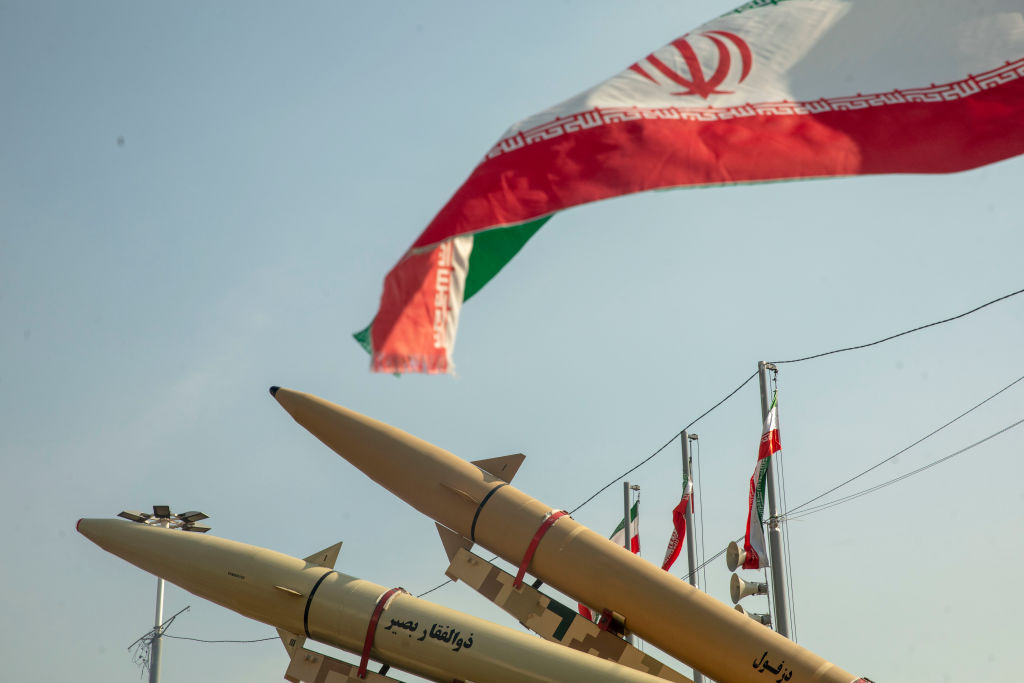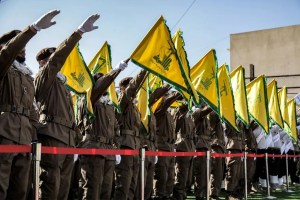The Middle East is bracing for an attack whose exact source, targets, method, timing and scope are unknown. On Monday, a suspected Israeli air strike targeted a group of Iranian officials in Damascus, Syria, and citizens of the region are now waiting to see how Iran’s regime will respond. Israel has scrambled GPS signals across the Middle East to confuse Iranian weapons – people living in places as far away from Israel as southeastern Turkey couldn’t use Google Maps on their phones this week. The GPS placed everybody in Beirut.
Monday’s attacks hit the Iranian consulate in the Syrian capital. Israel has staged dozens of attacks on Iranian targets in recent years, but this was in a league of its own. It killed Major General Mohammadreza Zahedi, one of Iran’s highest-ranking military officials, alongside six of his fellow commanders in the Islamic Revolutionary Guards Corps (IRGC), a militia that holds most of the military power in Iran. The Iranians all served in the Quds Force, IRGC’s external operations wing, which coordinates Iran’s support for anti-Israel forces in the Middle East, such as Hezbollah, Hamas and Palestinian Islamic Jihad.
What could Iran do in response? Some analysts compared this moment to January 2020 when, after the US assassinated Qasem Soleimani, then head of the Quds Force, Tehran lobbed dozens of missiles toward US bases in northern Iraq without killing a single person. Iran purposely did this to avoid escalation. But what makes this moment potentially more perilous is the fact that it could involve direct confrontation between Iran and Israel – the region’s most sworn enemies. Both sides, and the United States, have avoided this since October 7.
Shortly after Monday’s attack, Iran’s Supreme Leader and commander-in-chief, Ayatollah Ali Khamenei, promised his “brave men” will respond to the “cruel regime” of Israel. This seems to portend an unprecedented direct response, perhaps with a ballistic missile or drone, on Israeli territory. In briefings to American media, senior Iranian officials have said that a direct response would come soon. (One told me the same thing.) Iran’s envoy to the UN said he’d only speak to media “after Iran’s response to Israel.”
It has been six days since the Damascus strikes, and there is increasing pressure on Khamenei to do something. This comes not only from those ideologically opposed to the Jewish state, but from those who believe Iran must create some sort of future deterrence against a country attacking its diplomatic soil. Several Iranian commentators have called on the regime to either hit Israel or pursue a nuclear weapon as a more effective deterrent. A hardline Iranian student group wrote an open letter to Khamenei asking him rhetorically (and almost mockingly) whether there was a “red line” that Israel could cross to force an Iranian response.
The Supreme Leader finds himself in a tough spot. On the one hand, there is a clamoring for an attack on Israel. On the other, any direct confrontation with Israel could destroy Khamenei’s regime. For years, he has bided his time, painstakingly building up an array of militias in the region without getting into a direct war with Israel or the US. His proponents used to praise this as a wise form of “strategic patience.” It worked, until it didn’t. Israel has now called Khamenei’s bluff with recurrent attacks on Iranians and their allies in Gaza and Lebanon.
Iran might even forewarn the Israelis through secret channels
Prediction is a fool’s game in Middle East politics, but I’d say that Iran’s response, whatever it is, will be designed once again to avoid further escalation. It’s undeniable: many influential Iranians do talk about beginning a total war with Israel. At the funeral for Zahedi and his fellow IRGC officers in Tehran, held on Friday (which was also the annual anti-Israel Quds Day), the IRGC’s head, Hossein Salami, always a colorful rhetorician, said Israel was “in ICU” and that “whenever the West takes it off the ventilator, the Zionist regime will be destroyed.” He promised that “this moment is near, not far.” In the weekly sermon of Ayatollah Ahmad Alamolhoda, Friday prayer leader of Mashhad (a city in the northeast of Iran), he promised Israel’s destruction was coming.
But listen more carefully and you’ll see the usual game of harsh rhetoric combined with expectation management. In a recent speech, Hezbollah’s leader, Hassan Nasrallah, promised the “inevitable” coming of an Iranian response, but he also said that “the art of the battle” was to keep the enemy guessing. His comments seems to justify a response at the smaller end of the spectrum. Buried at the end of his long and angry speech against Israel, Alamolhoda said: “We shouldn’t be hasty in punishing the enemy.” It quickly made headlines. Speaking to media as he took part in the Quds Day rally in Tehran, a deputy head of the Iranian army said the country’s response will be “rational, with foresight and at the right time.”
In short, I think Khamenei will once more do what we have come to expect of him: talk loud and do little. Or to put it in the perspective of Iranian people, the regime knows how to be bold when it’s jailing and killing its own women and its own young people, but it cowers when faced with powerful foreign adversaries. There will probably be some sort of symbolic response, but Iran will avoid a suicidal confrontation with Israel. The regime might even forewarn the Israelis through secret channels (Americans who have been clandestinely meeting with Iranians in Muscat for the last few weeks would make for useful messengers…) to make sure that they are not unduly surprised.
Regardless, people are right to be alarmed. Many wars take place despite the wishes of protagonists on either side, not because of them. There is a very real possibility that a series of miscalculations on either side could start a war even more devastating that the current conflicts in the Middle East. Khamenei is no fighting man, but his murderous and hateful ideology puts everyone at risk.
This article was originally published on The Spectator’s UK website.


















